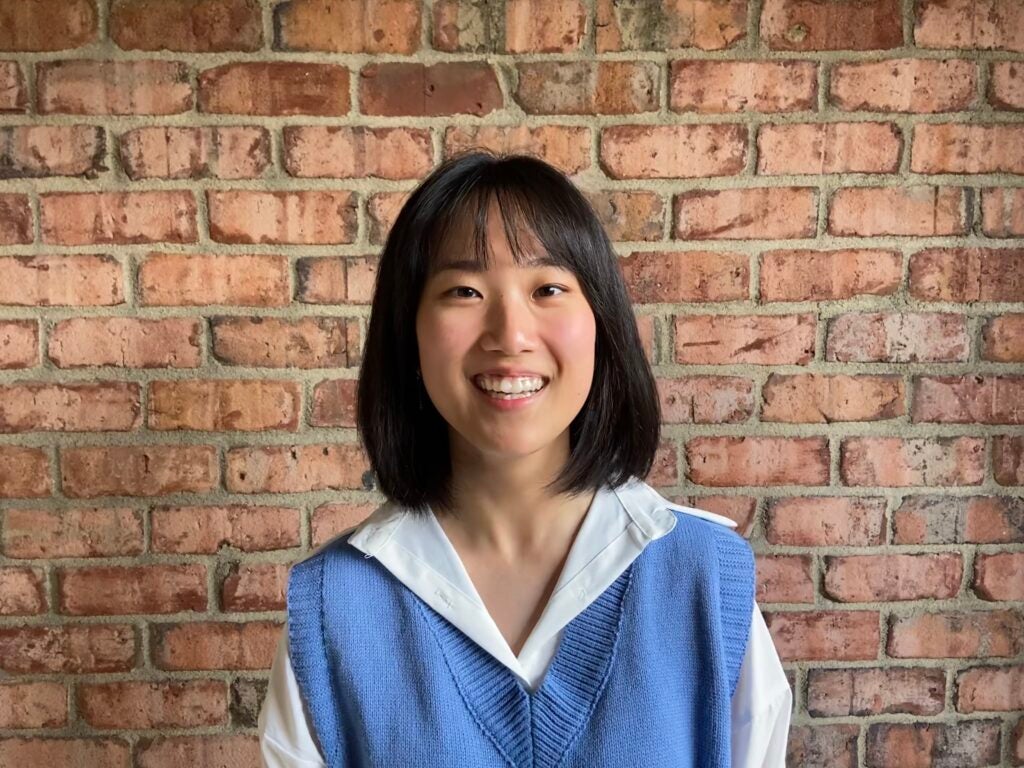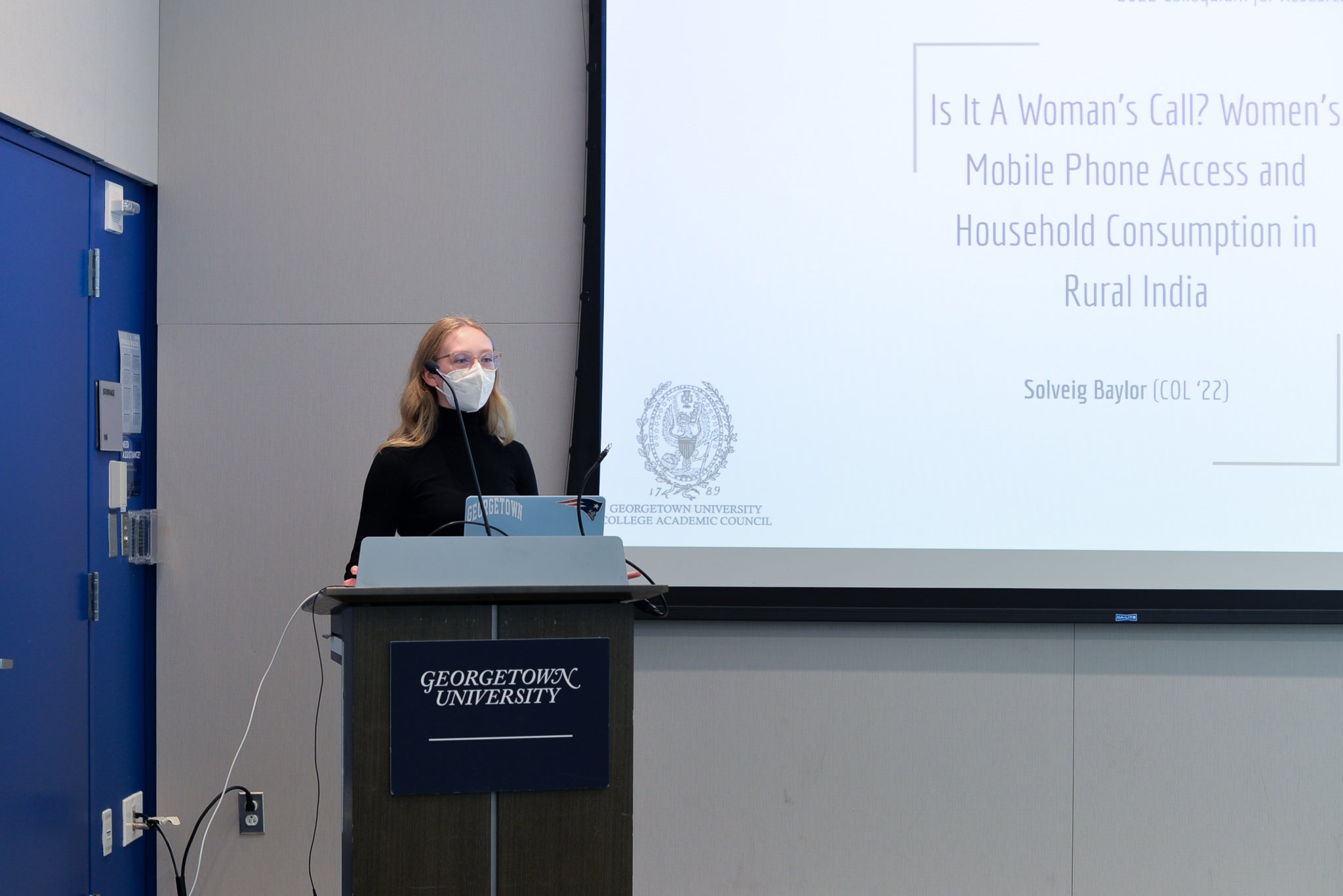Colloquium for Research in the Social Sciences and Humanities Showcases Academic Tenacity
Students recently exhibited independent and mentored research at the Colloquium for Research in the Social Sciences and Humanities (CRSSH).
Organized by the College Academic Council, the colloquium is open to student researchers from all of the university’s schools. This year’s colloquium featured research from 22 students, including 18 from Georgetown’s College of Arts and Sciences.
The breadth of research on display was vast, touching on topics as disparate as how Confucian martyrs functioned in the Joseon kingdom of Korea and how access to cell phones empowers women in rural India.
Reclaiming a Confucian Martyr
Gene Kim (C’23) presented her paper Jeon Bulgwan: Confucian Martyr, Confucian Victim, which came out of a class taught by Rosanne Morici, a lecturer in the Department of Theology.
Bulgwan, an enslaved Korean courtesan who lived during the 16th and 17th centuries, was elevated as a martyr after her suicide. Kim’s research situates the phenomenon of Bulgwan’s martyrdom within the social, political and religious structures of Joseon, the dynastic kingdom of Korea in which she lived.

“There was very little existing research,” Kim says. “I felt as though I was bringing a new idea to life rather than merely reorganizing old ideas.”
Kim describes the Joseon Dynasty as highly regulated. Women, in particular, had a difficult time modulating their behavior to fit expectations. After being ordered by a different official to serve him, Bulgwan chose to end her own life rather than be unfaithful to her previous partner. The story of Bulgwan was told, in several variations, to uphold the ideals of Confucianism.
Kim’s research extracts Bulgwan from the confinement of her martyrdom, giving her agency and seeking to understand how a woman can both be crushed by a system and exalted by it.
“I am particularly proud of this research because it was a unique opportunity to combine my Theology major with my Korean minor,” says Kim “And I am grateful to Professors Morici and Choi for their guidance.”
A Call for Household Agency
Solveig Baylor (C’22), a double major in economics and philosophy with a minor in math, wrote her senior thesis on how access to cell phones empowers women in rural India.
Baylor’s analysis used an existing data set to measure how access to a cell phone affected household consumption. Cell phone access in India cleaves along gender lines, reducing a woman’s ability to inform household decisions, arrange safe travel and engage with news media. Baylor’s research builds on the existing literature that establishes why, for a variety of economic and cultural reasons, women face barriers to access cell phones in rural India. Household consumption, and the decisions that influence it, records far more than a simple ledger of transactions.
“The household is the base unit of a community,” Baylor explains. “Understanding the forces that affect its consumption outcomes can have far-reaching implications for different types of policy.”
Baylor found that households in which a woman accessed a mobile phone spent their resources differently, decreasing overall household consumption while increasing money spent on food and household finances.
“The savings behavior and increased nutritional concern of households point to greater development in rural India,” Baylor reflects. “Mobile phones can change the horizon on many fronts: human development, poverty eradication and gender equality.”
-by Hayden Frye (C’17)
